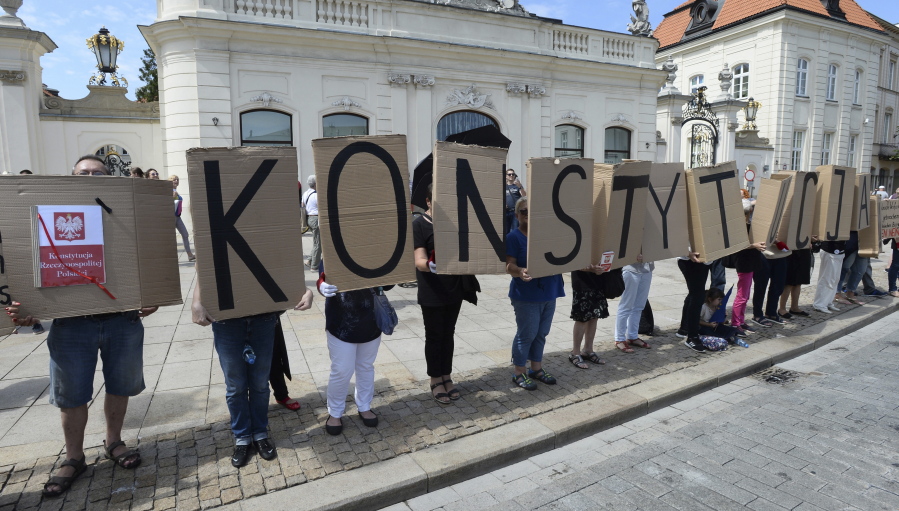WARSAW, Poland (AP) — Poland’s president unexpectedly announced Monday that he will veto two bills that would have sharply curtailed the independence of the judiciary, a victory for peaceful protesters who had gathered by candlelight every night for more than a week.
The European Union criticized the bills as assaults on the democratic system of checks and balances and threatened to begin proceedings soon to strip Poland of its voting rights in the 28-member bloc.
President Andrzej Duda “made the right decision,” Guy Verhofstadt, the leader of a liberal alliance in the European Parliament, tweeted. “But the fight for rule of law in Poland goes on — we are with the Polish people!”
The protests mark one of the most significant acts of civic mobilization since the Solidarity protests led by Lech Walesa in the 1980s, with large numbers of young Poles attending rallies daily fearing they might lose a future in a democratic state fully integrated in the West.
Walesa, the Nobel Peace Prize laureate and former president who helped end communism peacefully in 1989, praised Duda for what he called “a difficult and a courageous decision.”
Many Poles fear that a loss of basic democratic rights will change the county into a semi-authoritarian state, mirroring conditions in some other places in Eastern Europe.
“In our hearts and minds we are 100 percent Europeans,” said Marcin Trzepla, a 26-year-old who attended multiple demonstrations in Warsaw over eight days hoping to stop what he called “a huge step to the East.”
At first Trzepla, who works for an advertising agency, doubted the protests would have any effect, but showed up “so that I can look in the mirror and say I did whatever I could.”
He said he was shocked by Duda’s decision to veto the bills given the president’s history of loyalty to the ruling Law and Justice party. But he said he would keep on protesting in hopes the president might still block a third bill that would give the prosecutor general, who is also the justice minister, the power to name the heads of lower courts.
The bills were presented and passed by lawmakers over a 10-day period with no public consultation after a visit by Donald Trump to Warsaw, where the U.S. leader praised Poland as a defender of Western civilization.
Some critics believe the Law and Justice party, a populist and nationalist group, felt emboldened by Trump’s support.
The State Department, however, said Friday that “the Polish government has continued to pursue legislation that appears to undermine judicial independence and weaken the rule of law in Poland.”



